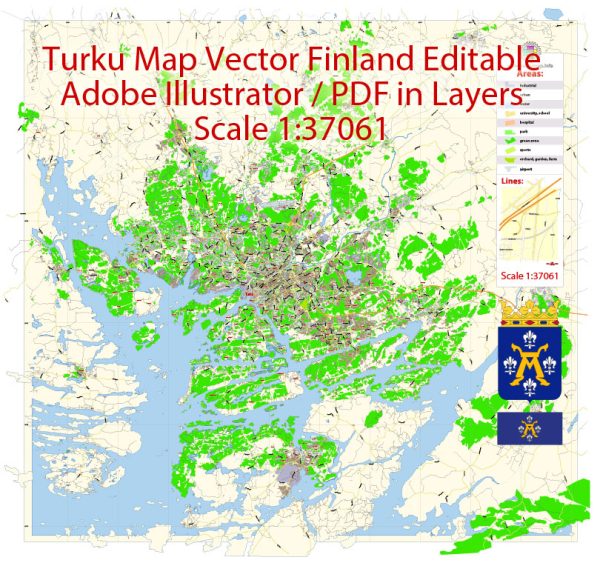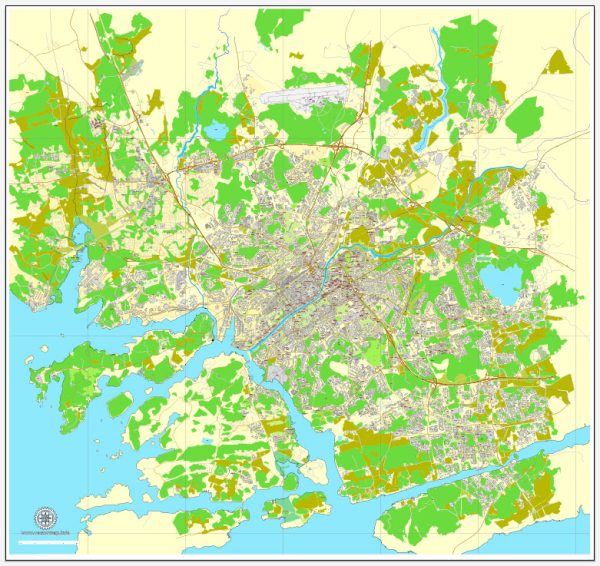Turku, the oldest city in Finland, has a history that dates back to the late 13th century. Here’s a brief overview of Turku’s history of urban development:
- Medieval Period (Late 13th century – Early 16th century): Turku was founded in the late 13th century, and in 1309 it became the seat of the Catholic Bishop of Finland. The city grew around the Turku Castle, which was constructed to secure Swedish rule in the area. Turku developed as a trade and administrative center during this time, with a layout typical of medieval European towns.
- Swedish and Russian Rule (16th century – Early 19th century): Turku continued to thrive under Swedish rule, and in the 17th century, it became the administrative center of the Grand Duchy of Finland within the Swedish Empire. However, in 1713, a devastating fire destroyed much of the city. The subsequent years saw the rebuilding of Turku, incorporating elements of Baroque and Rococo architecture. In 1809, Finland was ceded to Russia, and Turku temporarily lost its status as the capital.
- 19th Century: Industrialization and Expansion: Turku experienced significant growth during the 19th century, particularly with the advent of industrialization. The city’s economy diversified, and new industries, including shipbuilding, emerged. Turku’s urban fabric expanded with the construction of new residential and industrial areas.
- 20th Century: Wars and Modernization: Turku, like the rest of Finland, faced challenges during the Winter War (1939-1940) and the Continuation War (1941-1944) against the Soviet Union. The city was heavily bombed, leading to considerable damage. In the post-war period, Turku underwent reconstruction and modernization. The city expanded its infrastructure, and new residential neighborhoods were built.
- Late 20th Century to Present: Turku continued to evolve as an important cultural, educational, and economic center in Finland. The city invested in modern amenities, cultural institutions, and higher education facilities. Turku has also preserved its historical charm, with the Turku Archipelago and the medieval Turku Castle attracting tourists.
- Cultural Capital: In 2011, Turku was designated the European Capital of Culture, an honor that celebrated its rich history and vibrant cultural scene. This designation brought about various cultural events, festivals, and infrastructure improvements, contributing to the city’s identity as a cultural hub.
Today, Turku is a lively city that blends its historical heritage with modern urban planning and development. The city’s waterfront, historic sites, and cultural offerings continue to attract residents and visitors alike, making it a significant center in the southwestern part of Finland.



 Author: Kirill Shrayber, Ph.D. FRGS
Author: Kirill Shrayber, Ph.D. FRGS